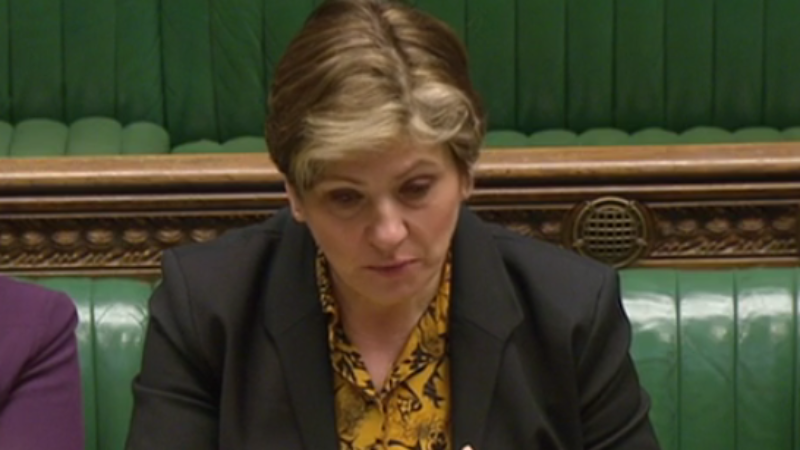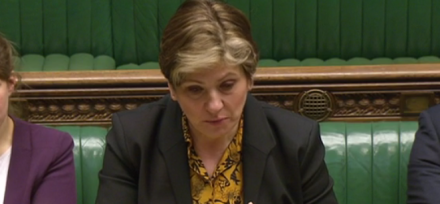

Dear Emily,
This letter assumes that Britain will have expelled itself from the EU within a few years, the Tories having apparently decided that it’s better to ruin the country in pursuance of a reckless promise by a discredited former prime minister than to risk the wrath of the Brexiteers by refusing to make the mess they have landed us in even worse by going ahead with Brexit. But that’s for a different letter.
The new foreign secretary has an unenviable task adjusting Britain to a hugely reduced international role outside the EU, a task made no easier by the baggage of infantile insults and lies that he carries from his past. You too will have to work hard holding Theresa May’s government’s foreign policy performance to account. Here are some criteria that you can apply.
Britain outside the European Union will carry much less weight in both international forums and bilateral relations. Suggestions that we still aspire to “a leading role” in the world will expose us to even more ridicule than we have already earned by our noisy participation in the Iraq fiasco and now by the deluded decision of our self-harming and unnecessary referendum to turn our backs on Europe. But we should not overstate the decline, however precipitous. Britain remains a permanent member of the UN Security Council (and can veto any attempt to expel us from it), of NATO, the OECD, the G8 and other Gs, and the underrated Commonwealth. We shall still have close relations with our former European partners, especially Germany and France, and with the US, although if Trump wins in November these may be problematic. Whoever is president, once out of the EU we’ll be of little interest to policy-makers in Washington. Much will depend on whether our government can forge links with Europe as similar as possible to those we had as an EU member.
The future success or failure of British foreign policy will be judged by how skilfully, constructively and realistically our Government behaves in all these institutions and in our key bilateral relations, compared with the boastful, grumbling posturing of the Cameron years.
You should go hard after Johnson and May if they seek to appease the Europhobes on the right of their party by bartering away our essential access to the EU single market, including passporting rights for our banks, in return for a largely meaningless right to reduce (“control”) EU immigration into the UK. As home secretary Mrs May has been trying and failing for the past six years to reduce even non-EU immigration, over which we have complete control, amounting to more than half of total net immigration to the UK: it has always turned out that restricting it would seriously harm our economy, including vital social services. To damage our freedom to trade with Europe without tariffs and other restrictions, especially when we have a massive trade deficit already, in order to acquire notional rights to reduce less than half of net immigration, rights that we shall never be able to exercise, would be the height of folly. A functioning Labour opposition should not be afraid to say so.
Don’t let the Tories get away with the nonsensical claim that increased trade with the Commonwealth will be an adequate substitute for trade with continental Europe lost as a result of Brexit. After initial misgivings, most of our Commonwealth partners came to realise that our EU membership enables them to use Britain as a gateway into the rest of Europe, investing and establishing subsidiaries and partnerships in Britain for the purpose. Brexit will end all that, damaging our commercial links with the Commonwealth almost as much as our links with the EU.
Many Commonwealth countries will look for alternative bases for trading into Europe, such as Ireland or the EU Nordic countries, rather than giving up on Europe and expanding their trade with us. The EU market, eight times bigger than Britain’s, will always offer richer possibilities than much smaller Britain outside it. All that will be left of our Commonwealth links will be cricket, New Zealand Sauvignon Blanc, and the occasional expensive winter holiday in summery Queensland.
Finally, Trident, Emily. We both know that since we have no nuclear-armed enemy to deter in any conceivable circumstances, it’s not much cop as a deterrent. Clearly it’s a waste of money. Many of our generals (fewer admirals) agree. But it has symbolic value in the minds of many people in the electorate, including the Labour party, showing that we are still a significant military power that can pull its weight in the world. Giving up our nuclear weapon status would be electorally damaging and misrepresented as a sign of a weak Labour party and a weaker Britain. Changing established Labour policy to keep Trident would involve a bitter divisive fight within the party. Who needs it?
Trident isn’t an immediate issue. Renewal will have been decided long before there’s another Labour government. Obsessing about it strikes ordinary people as irrelevant, indeed neurotic. The likelihood of any British PM having to decide whether to push the nuclear button when deterrence has failed is nil. And it’s not that expensive. CND reckon a total cost of replacing and maintaining Trident as around £100bn (possibly an exaggeration), but that’s over 40 years, averaging £2.5bn a year, or 5.4 per cent of the total defence budget for 2017 and a mere 0.3 per cent of total public spending next year. Keeping Trident won’t bankrupt us. Relegating Trident to the small print on page 102 of the Labour manifesto will be a useful contribution to the more modest, collegiate and peaceable foreign policy posture that will be appropriate for Britain after the traumatic hammer-blow of Brexit.
Brian Barder is a former civil servant and diplomat, now retired after stints as a hospital governor and a member of the Special Immigration Appeals Commission. He campaigns on civil rights issues, writes a blog and is the author of What Diplomats Do.




More from LabourList
Nudification apps facilitate digital sexual assault – and they should be banned
Diane Abbott suspended from Labour after defending racism comments
Labour campaign groups join forces to call for reinstatement of MPs